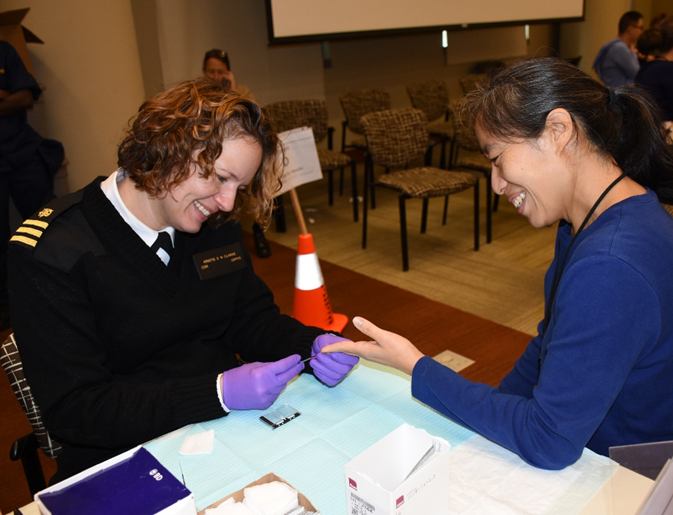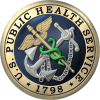-
- About ASB Main Page
- Deployment Travel and Travel Readiness
- Frequently Asked Questions
- Government Travel Charge Card
- Household Goods Officers
- Important Regulation Changes
- Junior COSTEP Travel Information
- Links
- Official Travel Forms
- Permanent Change of Station (PCS)
- Servicemembers Civil Relief Act (SCRA)
- Table of Frequently Used Acronyms
- Temporary Duty Assignments (TDY)
- Transportation
- Travel and Transportation
- Travel and Transportation Allowances FAQ
- Travel and Transportation Entitlements Summary
- Travel, PCS and Transportation
- Important Regulation Changes
- Travel & Transportation Entitlements Summary
- Permanent Change of Station (PCS)
- Temporary Duty (TDY)
- Junior COSTEP Travel Information
- Official Travel Forms
- Household Goods Officers
- Transportation
- Government Travel Charge Card
- Table of Frequently Used Acronyms
- Servicemembers Civil Relief Act
- Links
- Travel and Transportation Allowances FAQ
- Personnel & Career Management
- Licenses and Transcripts
- Licensure Overview and FAQs
- Transcripts FAQs
- Leave
- eCORPS Information
- Officer Leave and Absence Request FAQ
- Practice Hours
- Practice Hours FAQs
- Practice Hours User Guide
- Practice Hours Opportunities
- Long Term Training
- Extramural and Intramural Training FAQs
- Training Forms
- About Policy
- Commissioned Corps Issuance System
- Commissioned Corps Legislative Liaison Program (CCLLP)
- Equal Opportunity
- Frequently Asked Questions
- Political Restrictions
- Promotion Ceremony Protocol (PDF, 126kb)
- SGHG Drill and Ceremonies Manual (PDF, 3.39mb)
- Uniform Specifications
- PHS Hard Shoulder Boards and Sleeve Insignia (Male and Female) (PDF, 828kb)
- PHS Soft Shoulder Marks (Unisex) (PDF, 324kb)
- Physical Training Uniform (PTU)
- Deployment Information
- Deployment Handbook
- Operations and Deployment
- On-Call Schedule
- Deployment Awards
- Other Resources
- About the Training Branch
- Training Dates
- Career Pathways
- Webinars
- Career Development Trainings
- Officer Basic Course (OBC)
- Officer Intermediate Course (OIC)
- Preparedness Trainings
- Military Facility Annual Training (MFAT)
- Partner Trainings
- Army War College (AWC)
- Interagency Institute for Federal Health Care Executes (IAI)
- Capstone Leadership, Education, Analysis, Development, Sustainment (LEADS)/Joint Medical Executive Skills Institute (JMESI) Course
- Command and General Staff Officer Course (CGSOC)
- Defense Advanced Research Project Agency (DARPA)
- Joint Medical Executive Skills Institute (JMESI) Intermediate Executive Skills (IES)
- Office of National Drug Control (ONDCP)
The USPHS Commissioned Corps is committed to our mission to protect, promote, and advance the health and safety of the nation. Public Health Service officers are trained and equipped to provide crucial public health leadership, assist with policy development, advance innovation and science, provide essential care services and respond to national and global public health emergencies. Through our Active Duty Regular Corps, our Public Health Response Strike Team (PHERST) and our Ready Reserve Corps, we remain responsive and available to rapidly deploy in the service of health.
-
Officer Spotlight
CDR Kristie E. N. Clarke
 “I would advise someone wanting to lead a life of public service to really clarify their own core mission and values in writing, and to reference them at each fork in the road. If you are in harmony with your mission and values, it gives you a well of energy and peace to draw from in tough times..”
“I would advise someone wanting to lead a life of public service to really clarify their own core mission and values in writing, and to reference them at each fork in the road. If you are in harmony with your mission and values, it gives you a well of energy and peace to draw from in tough times..”CDR Kristie E. N. Clarke serves as a pediatrician and epidemiologist stationed at the Centers for Disease Control and Prevention (CDC). In her current role, she tackles challenges to public health systems modernization by brainstorming solutions around improving data and addressing health disparities.
CDR Clarke joined the U.S. Public Health Service (USPHS) Commissioned Corps 12 years ago as a CDC Epidemic Intelligence Service (EIS) officer. The EIS Program is a globally recognized 2-year, full-time fellowship in applied epidemiology. Prior to that, she completed a residency in pediatrics at Duke University Hospital.
Her first project as an EIS officer involved working, with partners on the ground in Kyrgyzstan, on a 6-week program to reduce iron deficiency anemia among children. As someone who loves to travel, she said: “Driving the length of that beautiful country and meeting so many kind, hard-working people was an amazing start to my new career!”
However, further assignments would allow her to see firsthand the disruption and suffering caused by a public health emergency. During the West Africa Ebola outbreak, she deployed to quarantine stations at U.S. airports and served in the field in Sierra Leone. CDR Clarke remarked: “The experience made a huge impression on me and continues to serve as inspiration for service during other outbreaks.” During subsequent Ebola outbreaks, she worked to vaccinate health care workers to prevent the devastating effects the Ebola virus had on the West African medical system, which she witnessed first-hand. She said, “I consider healthcare workers all over the world to be my colleagues. If I can help protect them, I know that I’m also protecting everyone in their community.”
CDR Clarke’s work also allowed her to make a difference in immunizations for children. She states: “While working in global immunization, I undertook a massive study of the worldwide epidemiology of diphtheria in the 21st century.” She was able to present her findings before the vaccine advisory group to the World Health Organization (WHO) at a conference in Geneva. After the conference presentations, WHO expanded its recommended vaccination regimen to include diphtheria boosters, a step toward enhanced protection for hundreds of thousands of children.
During the COVID-19 pandemic, CDR Clarke said she was challenged beyond her previous assignments. For more than a year, she led a team who worked to identify and mitigate the impact of the pandemic on people in disproportionately affected populations, including those living with disabilities and those experiencing homelessness or incarceration. She also led a multi-year national study on the proportion of people in the U.S. who had antibodies to SARS-CoV-2; she experienced a surreal moment when she reported study findings in a national press conference alongside then CDC Director Dr. Rochelle Walensky.
Most recently, CDR Clarke deployed to Equatorial Guinea in April 2023 to help combat an outbreak of Marburg virus disease (MVD), caused by a rare but highly fatal viral hemorrhagic fever zoonotic virus closely related to the Ebola virus. She identified and monitored health care workers who had been exposed to MVD and, if symptoms developed, got them tested and treated as early as possible. “Having seen the devastation caused by Ebola, I felt called to support our efforts to contain the MVD outbreak in collaboration with the Equatorial Guinea Ministry of Health and WHO. I felt I was in the right place at the right time,” CDR Clarke commented.
CDR Clarke enjoys representing the expertise encompassed by Public Health Service officers and civilian colleagues; she has served as the U.S. Public Health Service Commissioned Corps Delegate to the American Medical Association, presenting testimony from experts at several federal agencies. CDR Clarke characterizes herself as “very mission-driven” and describes her years of service as “a wonderful career so far with so many unique experiences.” Both her and her husband, CAPT Kevin Clarke, are Public Health Service officers. “We both strive to uphold the core values of the service—leadership, integrity, service, and excellence—and to model this for our daughter both in our work and at home.”
When asked what words she has for others seeking careers in public service, CDR Clarke states: “I would advise someone wanting to lead a life of public service to really clarify their own core mission and values in writing, and to reference them at each fork in the road. If you are in harmony with your mission and values, it gives you a well of energy and peace to draw from in tough times. Also, we can most effectively nurture the physical and mental health of others when we are doing the same for ourselves. Take time for yourself, friends, and family to replenish your energy and have fun.”
USER ASSISTANCE
Please check our Frequently Asked Questions (FAQs) . FAQs are located at the top of the page next to the search function.
Having Access Issues or Need IT Help? Please contact the Commissioned Corps Helpdesk at: CCHelpDesk@hhs.gov
COMMISSIONED CORPS NEWS
Officer Spotlight September 2025
Officer Spotlight
Practice Hours Opportunities
Practice Hours Opportunities
2023 Temporary Grade Promotions
CC News Announcement 2023 Temporary Grade Promotions
Changes in Tattoo Policy in CCI 412.01, Uniforms and Appearance
Changes in Tattoo Policy in CCI 412.01, Uniforms and Appearance
Surgeon General Priorities
Surgeon General Priorities
January 2021: United States Public Health Commissioned Corps Doctrine
The link above will take you to the Noncompetitive Promotion Roster for Promotion Year 2020.
FAQs Practice Hours and Special Pay Changes
This is first in a series of FAQs, more FAQs will be forthcoming on Practice Hours and Special Pays.
Coronavirus Disease 2019 (COVID-19) Mission - Deployments Readiness Updates
As we position ourselves to assist with controlling the spread of the Coronavirus Disease 2019 (COVID-19), please note that we’re in an “all-hands on deck” status. Messaging has gone out from the Assistant Secretary for Health reminding Commissioned Corps officers of their deployment responsibilities...
Protecting, Promoting and Advancing the Health and Safety of Our Nation. Commissioned Corps Headquarters
1101 Wootton Parkway, Suite 300
Rockville, MD. 20852
240-453-6000-
COMMISSIONED CORPS- Home
- Contact Us
- About Us
- Site Map
-
U.S. DEPARTMENT OF
HEALTH AND HUMAN SERVICES- HHS Home
- Office of Assistant Secretary for Health
- Office of the Surgeon General
- USPHS.gov
-
U.S. GOVERNMENT- The White House
- USA.gov
- USAJOBS.gov
- DATA.gov
-
ADDITIONAL INFORMATION- Plain Writing Act
- Accessibility
- Privacy Notice
- Freedom of Information Act
- Disclaimers
- Vulnerability Disclosure Policy

-
COMMISSIONED CORPS OF THE
U.S. PUBLIC HEALTH SERVICE® - CCMIS